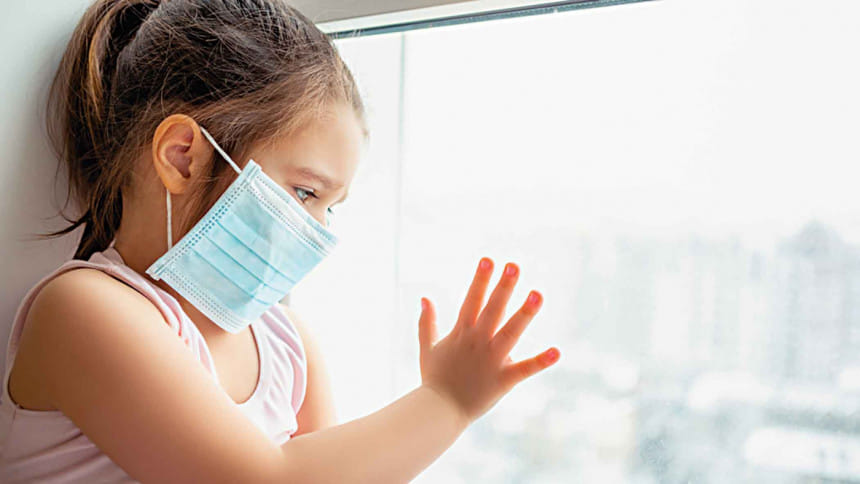Heart diseases of children and coronavirus

The novel coronavirus was first described in a cluster of patients presenting with pneumonia symptoms in Wuhan, China in December of 2019. These viruses have been shown to cause direct damage/injury to the muscle of the heart(myocardium), as there are known cases of myocarditis caused by both influenza and coronaviruses. Furthermore, patients with underlying heart diseases seem to have increased mortality and morbidity related to viral infection.
One study showed that a good number of patients who are infected with COVID-19 may not exhibit any symptoms at all. Most symptomatic patients with COVID-19 will present with fever, dry cough and shortness of breath requiring supportive care like supplemental oxygen. Baby can develop abdominal pain, nausea, and diarrhoea also. Chest X-ray will reveal findings of bilateral pneumonia.
Compared to the adult patients, children diagnosed with COVID-19 seem to have less severe disease (an overwhelming inflammatory response leading to cytokine storm). Most of the cases of children in China were mild to moderate in nature. In research, it revealed that young children, especially infants, however, seemed to be more susceptible to severe disease than older children.
Dear parents, please take care of the children who are already diagnosed with heart diseases. Maintain the cleanliness of your children. Touch and feed your child after proper cleaning/taking bath. Please properly wash your hand before handling them. Better not to give the caretaker to handle the small child during this crucial time, if they are not able to maintain the cleanliness. Give the cardiac medicine which was already prescribed for your child by the cardiologist. If the follow-up dates are coming, you can talk to the cardiologist over the phone. There are some hospitals which have telemedicine services, at times like these, it is better to avail the telemedicine services from these hospitals to avoid exposure to COVID-19.
Please prevent pneumonia by treating cough and cold at early stages talking to the doctors. Every pneumonia is not by the coronavirus. Do not hesitate to consult with the child cardiologist regarding this. Children having heart diseases are more prone to develop recurrent cough and cold and even pneumonia as the natural haemodynamics of the disease.
Please use a mask while visiting physicians. Do not ask your child to cough in front of the doctor. The paediatrician or cardiologist will differentiate if pneumonia is for coronavirus or bacterial infection after examining the child. They will differentiate it by chest x-ray and blood test reports also.
Children having myocardial infarction or congenital heart diseases with COVID-19 infection are at risk because of their reduced or impaired cardiovascular functional reserve and that viral infection increases myocardial oxygen demand leading to worsening ischaemia and necrosis, or increase metabolic demand that leads to heart failure and death.
After diagnosis, the treatment protocol will be decided by the paediatric cardiologist, paediatrician and by intensivist according to the status of the child. Please stay safe.
The writer is a Consultant Paediatric Cardiologist at Evercare Hospital Dhaka.
Email: [email protected]

 For all latest news, follow The Daily Star's Google News channel.
For all latest news, follow The Daily Star's Google News channel. 



Comments